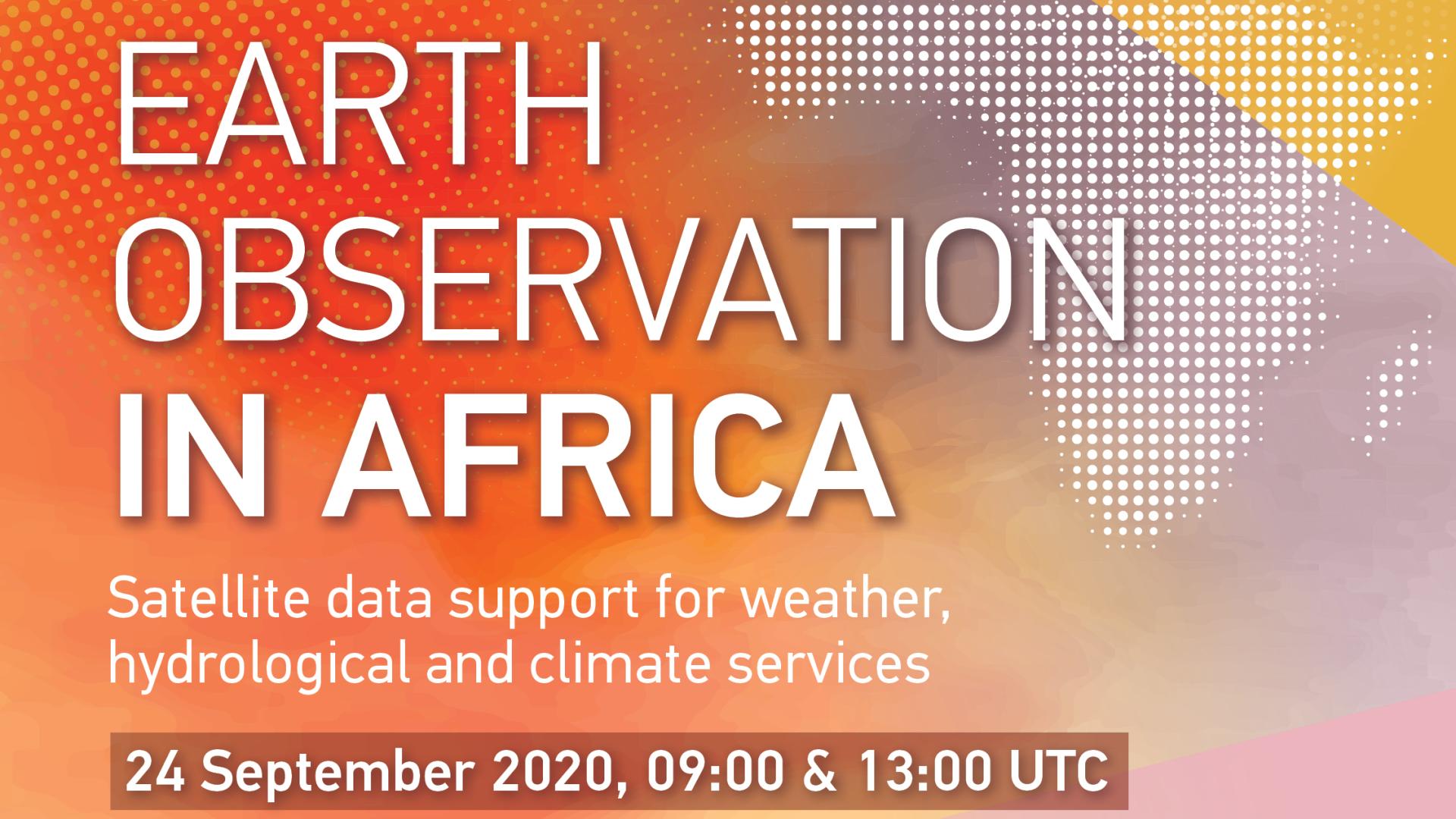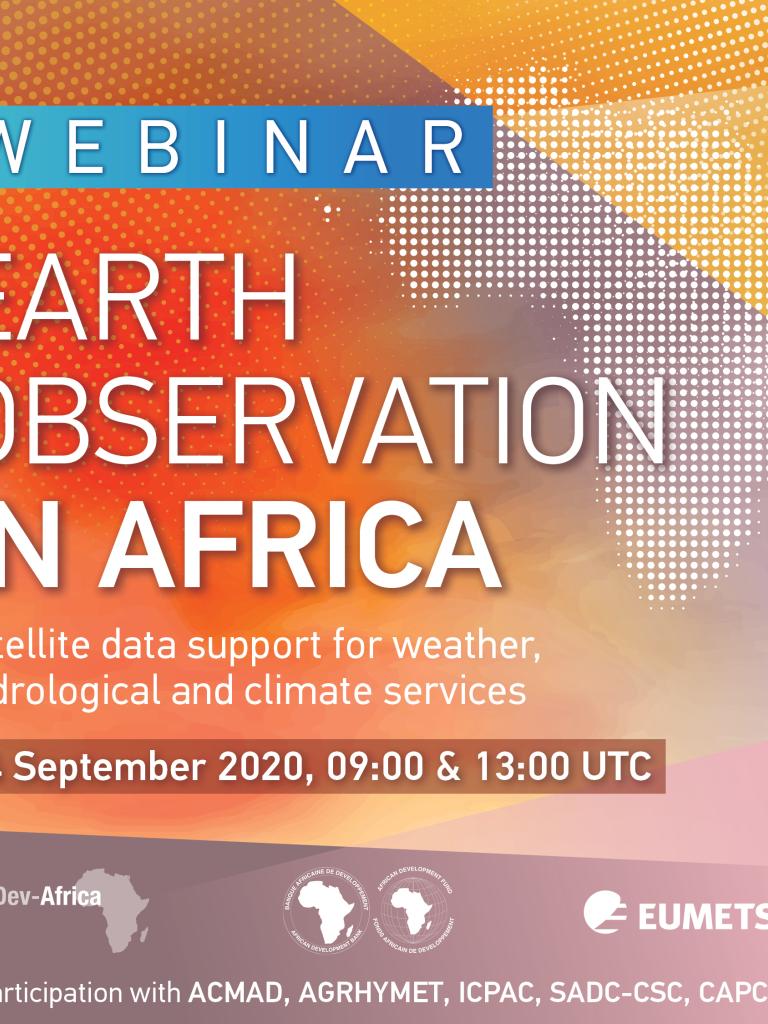
Webinar on Earth observation in Africa.


Webinar on Earth observation in Africa highlights the importance of satellite observations for monitoring climate change.
27 May 2021
25 September 2020
EUMETSAT, together with the African Development Bank (AfDB), ran a very successful webinar on Earth observation in Africa yesterday, which attracted over 500 registrants and more than 400 external viewers watching live – which speaks volumes as to the importance of the topic.
The webinar was an opportunity for participants to find out from and ask questions to representatives from five Regional Climate Centres (RCCs) in Africa, who discussed the benefits Earth observation has brought to their regions and the future prospects for monitoring the climate, agriculture and water resources in a continent heavily impacted by climate change.

Anthony Nyong, Director of Climate Change and Green Growth at the AfDB, opened proceedings:
“We are pleased that through the Satellite and Weather Information for Disaster Resilience in Africa (SAWIDRA) project, the Climate for Africa Special Funds (CDSF) is bridging a gap by strengthening the capacities of Africa’s Regional Climate Centres. Together with the national meteorological and hydrological services, this institutional set up offers timely and reliable weather and climate forecasts.”
EUMETSAT Director General, Alain Ratier, also addressed the participants from Darmstadt in an opening speech to highlight the importance of satellite observations for the continent and the long-standing EU-Africa cooperation, saying:
"The products and services presented by the Regional Climate Centres demonstrate that investing in the access and use of Earth observation in Africa is decisive for the sustainable development of this weather- and climate-sensitive continent."
Many topics were covered, including the need for climate/weather information for sustainable development and disaster risk reduction in Africa, and the significant partnership between the CDSF, the RCCs and EUMESAT.
It was also a good opportunity to review the future perspectives of Earth observation in Africa, and Paul Counet, Head of the Strategy, Communications and International Relations division at EUMETSAT, was on hand to talk about our next generation of satellites, and the impact they will have for Africa:
“What is important is the continuity of data, and with the launch of Meteosat Third Generation (MTG) in 2023, we will be able provide this continuity. The satellites will have new, innovative instruments on board and it’s necessary for us to make sure users of this data can continue to use it as before, but we will also invest in making sure they will benefit from the new capacities available from these satellites.”
If you would like to watch the webinar in full, visit our YouTube channel to view all of the different presentations and discussions.
We would like to thank the African Development Bank Group, the Climate for Africa Special Funds and Africa’s five Regional Climate Centres, as well as everybody else involved in making this a successful webinar.
